By clicking submit, I consent to my personal data being collected, stored, and processed by Think Pacific in accordance with our Privacy Policy.
‘Why Consider Future International Voluntary Work?’ by Hannah Mitchell, a past volunteer.
Here’s Five Reasons Why…
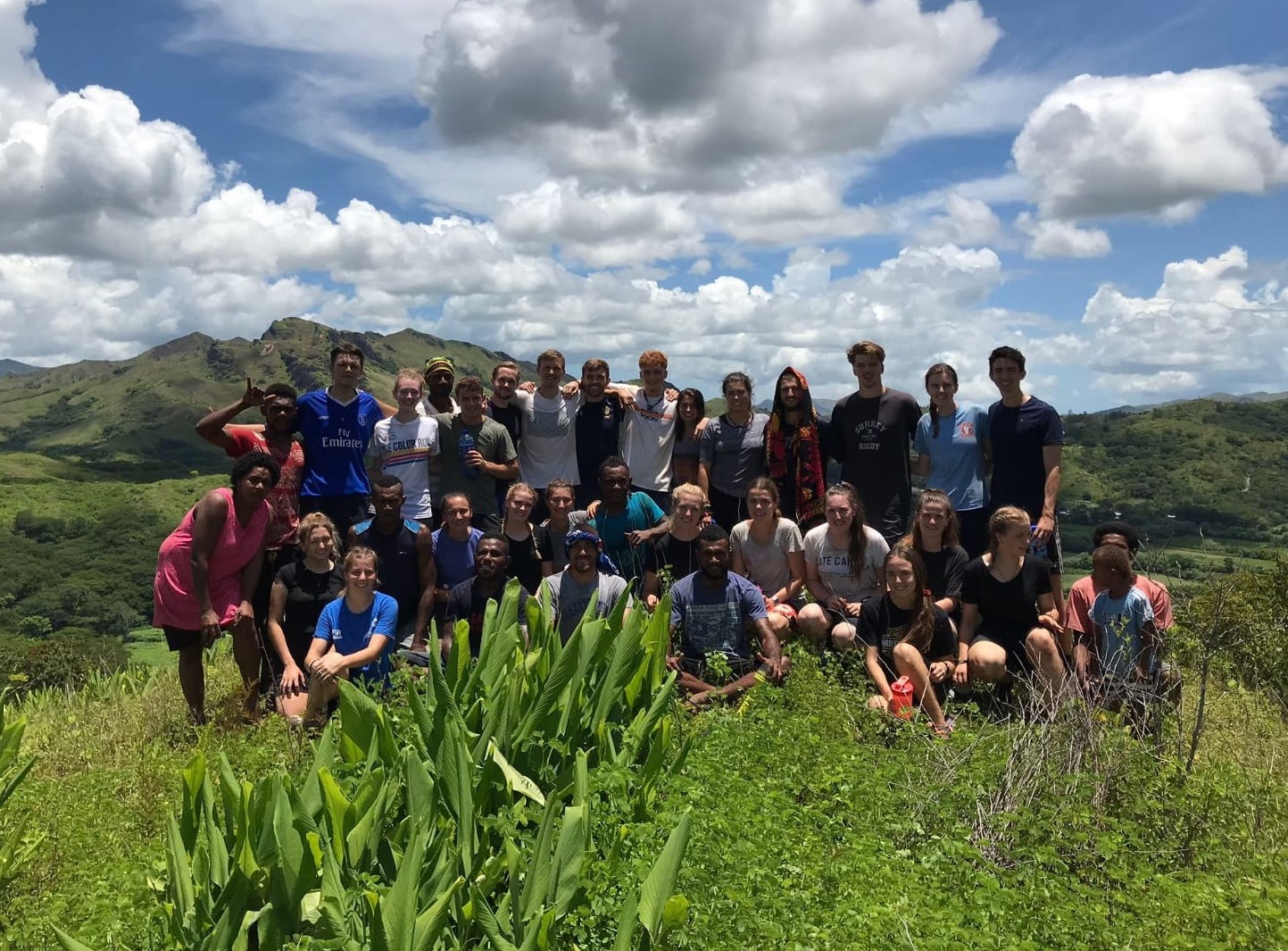
We are living during uncertain and unprecedented times. Staying at home is, now, the new going out. For so many of us, our plans for venturing the outside world have come to a standstill, since the further developments of the global COVID-19 pandemic.
Travels have been cancelled or postponed, leaving those with former travel plans pining for the next possible getaway. Volunteering is at a new high, with an inspiring number of people enlisting to help one another during this time of need.
I’m here to urge anyone, with or without the intention to travel or to volunteer once the current crisis ceases— during this period of additional time to reflect and plan for our post-pandemic lives, to deeply consider getting involved with some form of international voluntary work. As ultimately, across the globe, we will all need to reach out to and provide one another with a helping hand, more than ever, in the wake of this worldwide pandemic.
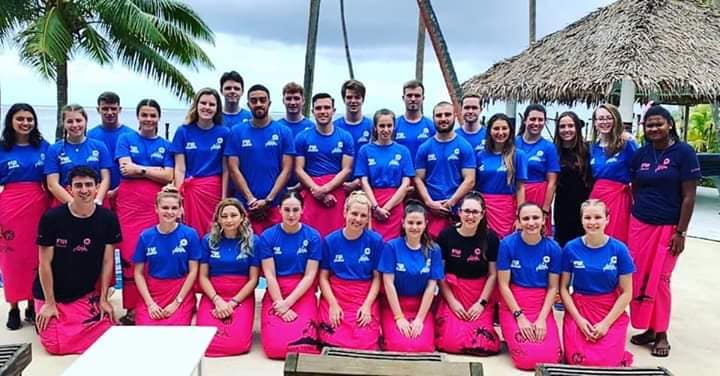
Having recently returned from a voluntary group expedition with Think Pacific— an award-winning volunteer organisation and charity in the Fiji Islands—, I feel utterly compelled to encourage and persuade others to follow similar suit in the future.
‘Why Should I Consider Future International Voluntary Work?’, you may ask. Firstly, great question. I’m so glad you asked. In the following, I have compiled my five key reasons to answer just that.
1. Educational Impact
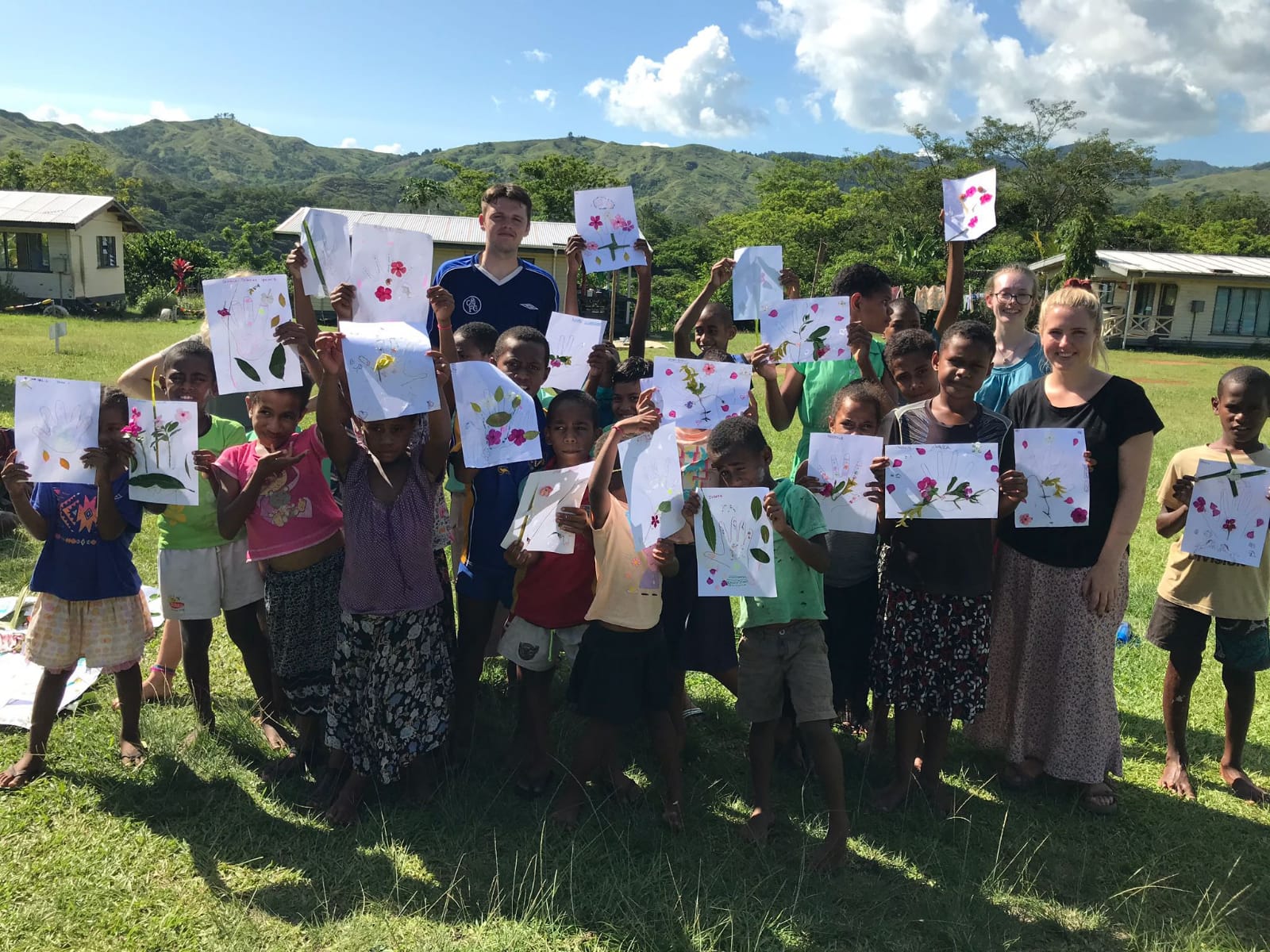
Education is often an integral focus of international voluntary organisations. Teaching English as a foreign language (or TEFL) in a classroom-based environment, is the stereotypical example that comes to mind when you consider both ‘education’ and ‘international volunteer opportunities’ in the same sitting. However, it’s not all just pens, workbooks and gold stars.
Coaching or mentoring sports abroad, caring for animals at a foreign conservation centre, and working with an international environmental organisation are just few examples of how you can make an educational impact whilst volunteering internationally.
The benefits of volunteering are not just for the communities with which you’ll be working. Yes, it’s quite likely that, with your voluntary work, you will bring new facilities, resources or even ideas to, frequently, underdeveloped or underfunded communities.
However, you should be mindful when signing up with any charities or voluntary work organisations that their work is ethical, sustainable and has a focus on working as one with the community- your work should never impose your, or your own society’s, ideals upon these communities.
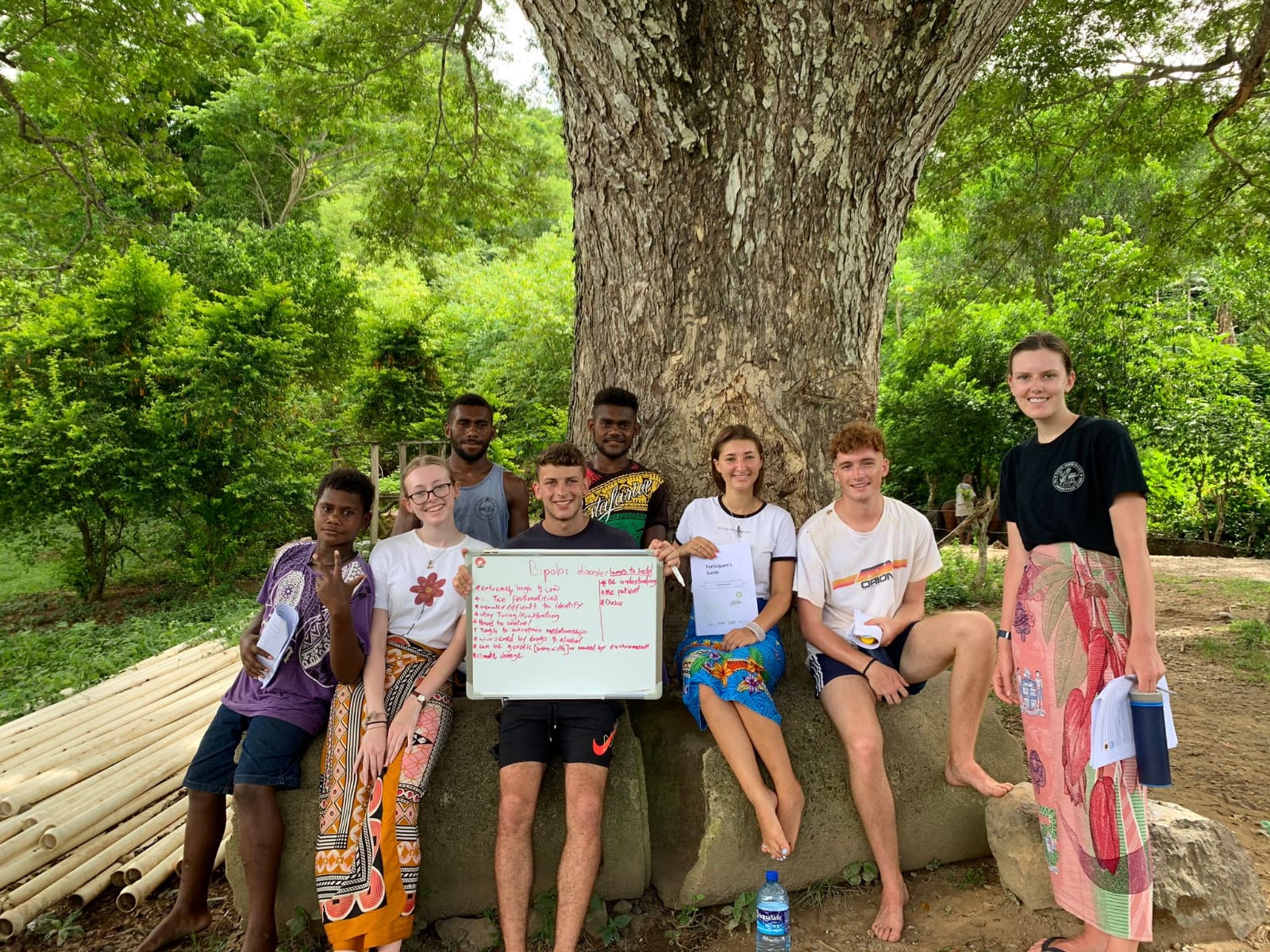
The educational impact of volunteering abroad is mutually beneficial for both volunteers and the communities you’ll be working with, and this shared learning experience is a highly special and rewarding feeling.
With the Think Pacific charity, we volunteered with the youths in our village to facilitate various educational workshops. Furthermore, a select few volunteers worked with the village rugby team to provide additional sports coaching. We also ran homework clubs for the village children and visited the local school to host sports and arts and crafts classes.
Yet, the learning did not stop here. The youths, children, mothers, elders—all groups within the village— reciprocated, by teaching us in abundance about Fijian cooking, farming, craftsmanship, singing, dancing, their customs, their local history and their faith, to name more than a few. And, especially, how to be more loving, thankful and selfless individuals- just like themselves.
My time volunteering internationally, with its subsequent shared educational impact, was quite possibly the most quintessential and real living proof that sharing is, indeed, caring.
2. Friends and Family
“We entered the village hall and waited to be paired up with our respective families. And when the announcements were made, cheers and laughter followed, including a loving hug from our Fijian mum” (Travel Journal Entry dated 22/01/20)
By signing up to volunteer abroad, you are not only enlisting yourself to help create positive change during a once in a lifetime experience, but you are also signing up to create new, lifelong friends and family from across the globe.
You will connect with those you meet— whether that’s your fellow volunteers or those within the communities you’ll work— in ways unimaginable at present, and you’ll no longer be able to remember life before your experience and before meeting one another.
I am so proud and exceptionally grateful to say that I now have a family and a home on the other side of the world. A massive contributory factor to this was living with a host family
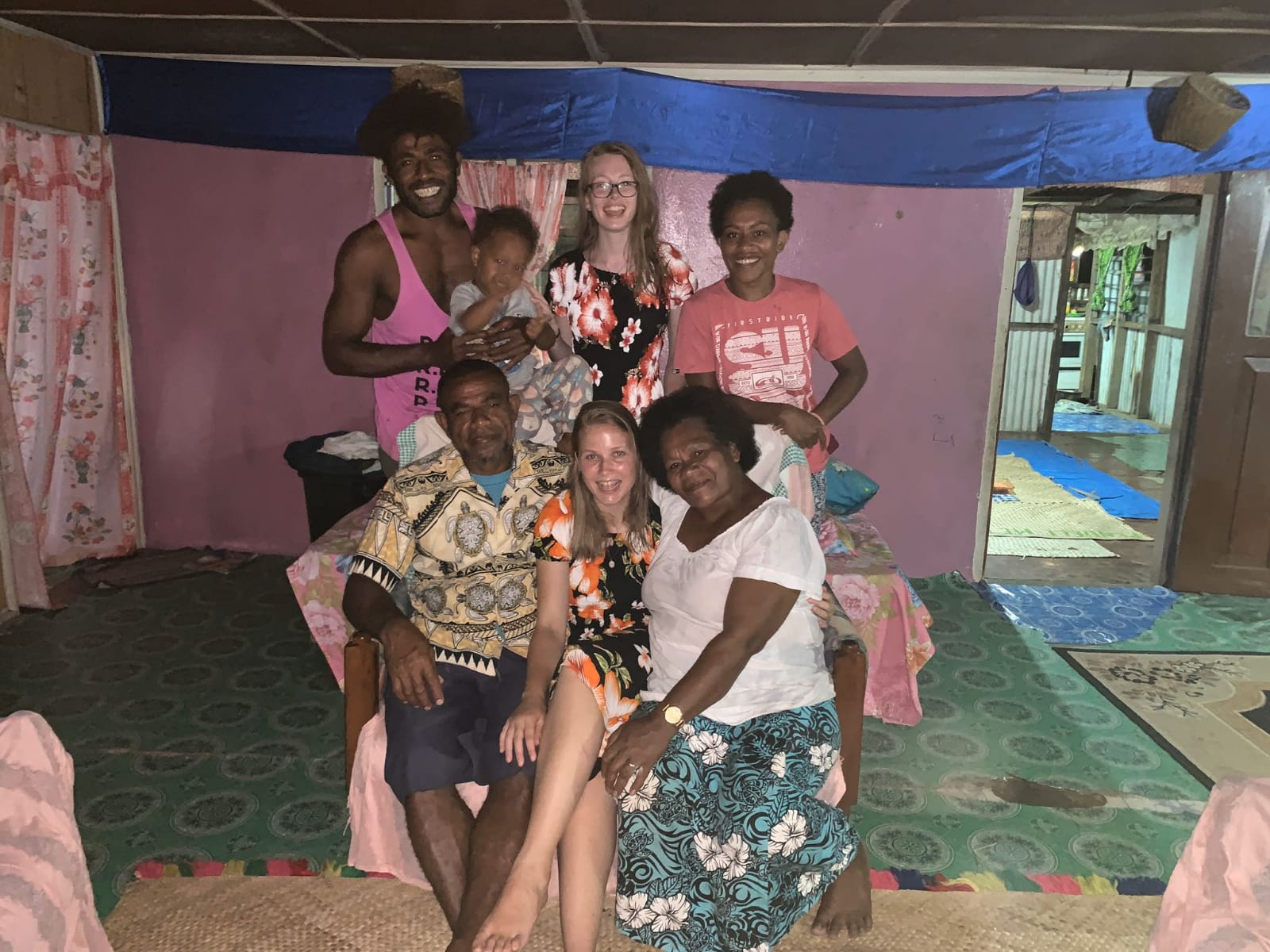
As a result, I implore anyone considering international volunteering to contemplate prioritising this hosting feature when researching volunteer programmes abroad. I believe this factor truly helped to elevate the lifelong relationships that were formed on our trip to a greater level, and I am so utterly thankful for every moment I spent with my Fijian family. I miss them dearly.
This whole premise of newfound friends and family may sound somewhat overwhelming or daunting, particularly for those with a predisposition to social— or any types of— anxiety. But I can assure you that I cannot recall another time where such a level of nerves paid off to a better experience than this.
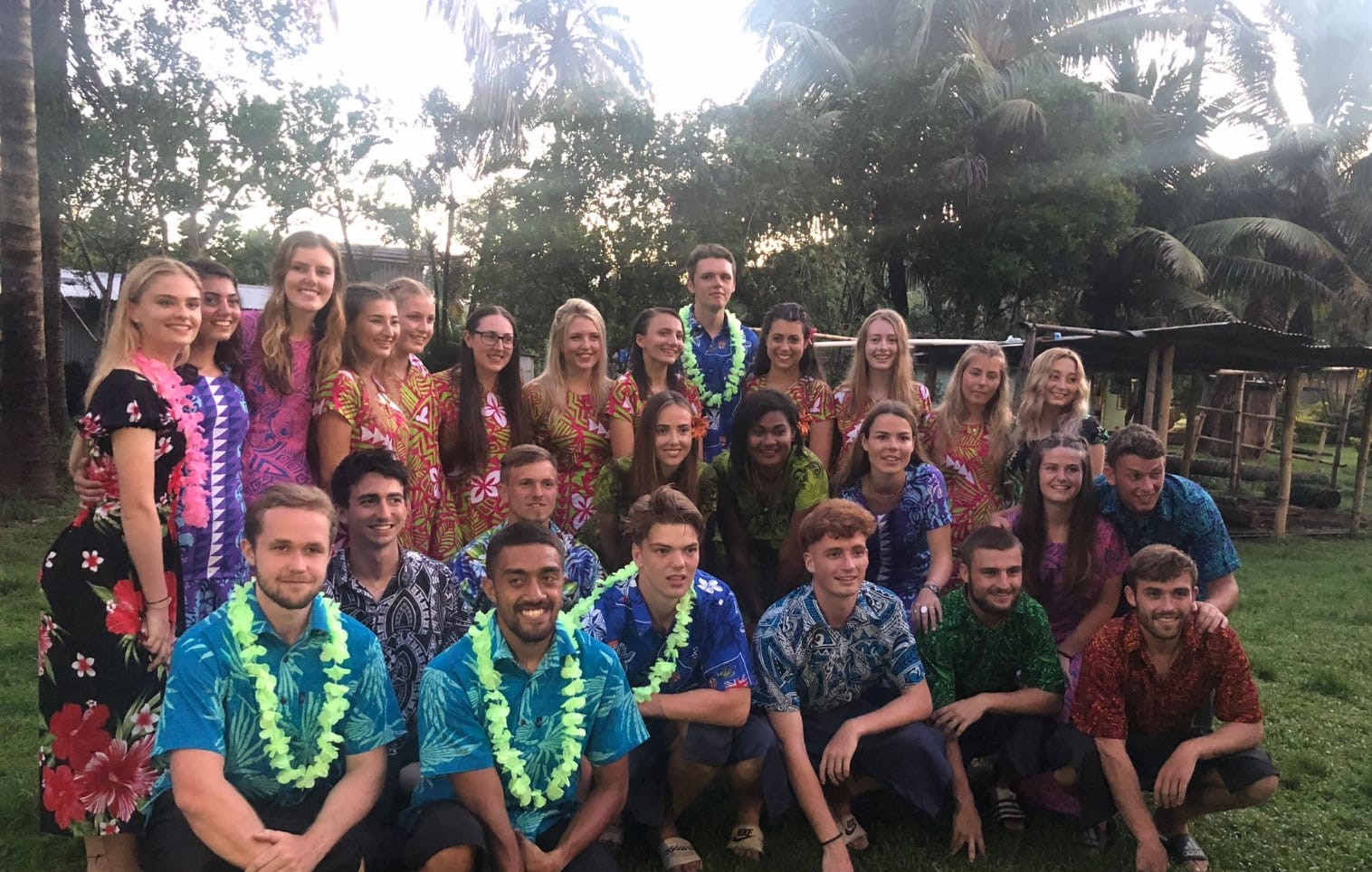
Yet, let us not forget our loved ones we leave behind at home to go and chase our new experiences, families and friends somewhere else in the world. Volunteering abroad also helps you to appreciate those you care about back at home, and to strengthen and build upon those pre-existing bonds too.
I can confirm that absence can make the heart grow fonder, in which homesickness was not a rarity to find within the group whilst we were away- a completely healthy and normal feeling to experience. And a feeling which, even though I am home back in the UK, I am still experiencing to this day.
” [Our penultimate evening’s dinner] was such a family occasion… one which I’ll never forget, and one I’ll always cherish” (Travel Journal Entry dated 12/02/20)
And why stop at making new friends and families, when you can make new travel companions too? If you find yourself journeying onward following your international voluntary work, you may just find other volunteers in the same boat (quite literally) as yourself. As demonstrated by my lovely fellow project team members, on their shared travels after our project: island hopping through the Fiji Islands and then travelling on to New Zealand!
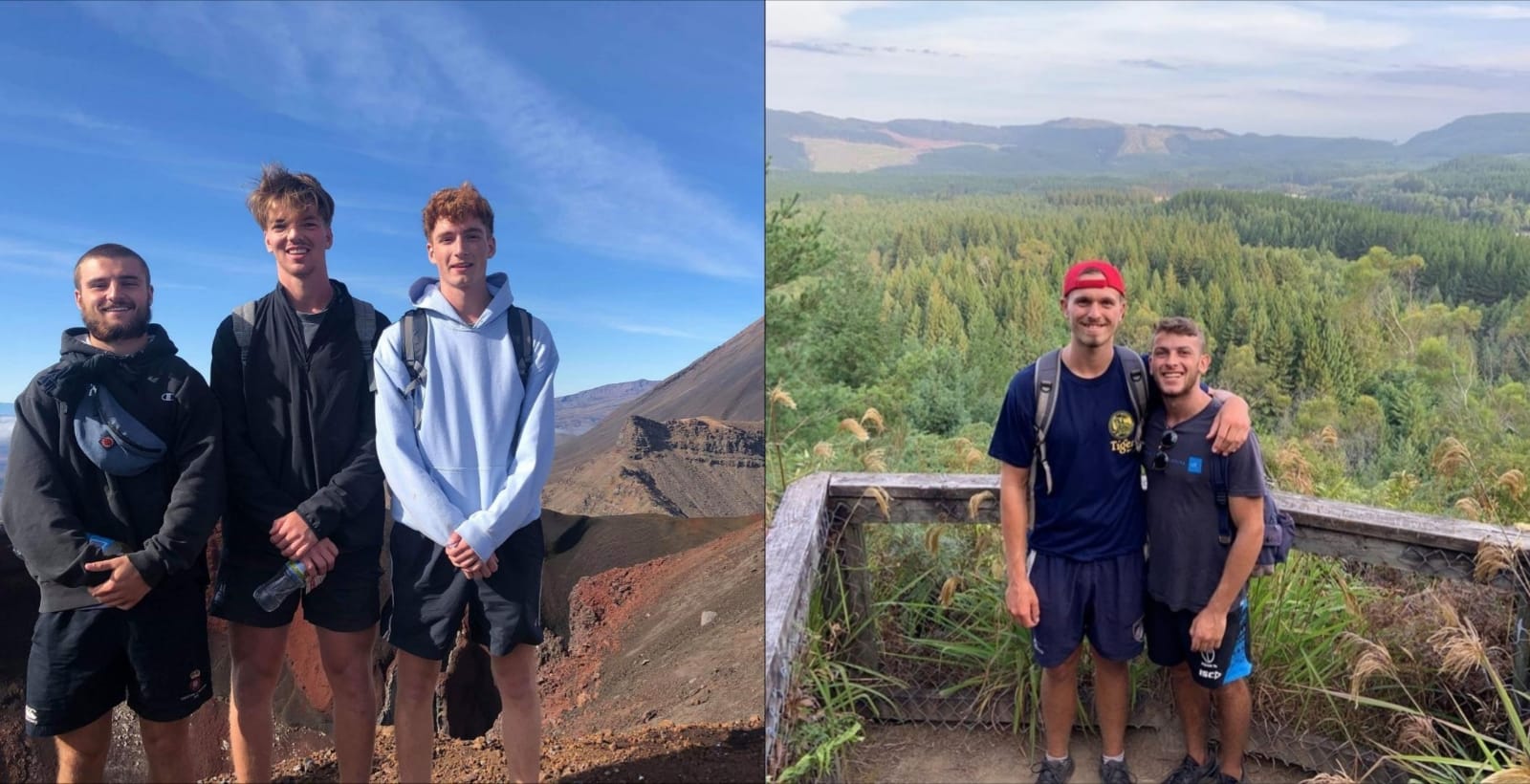
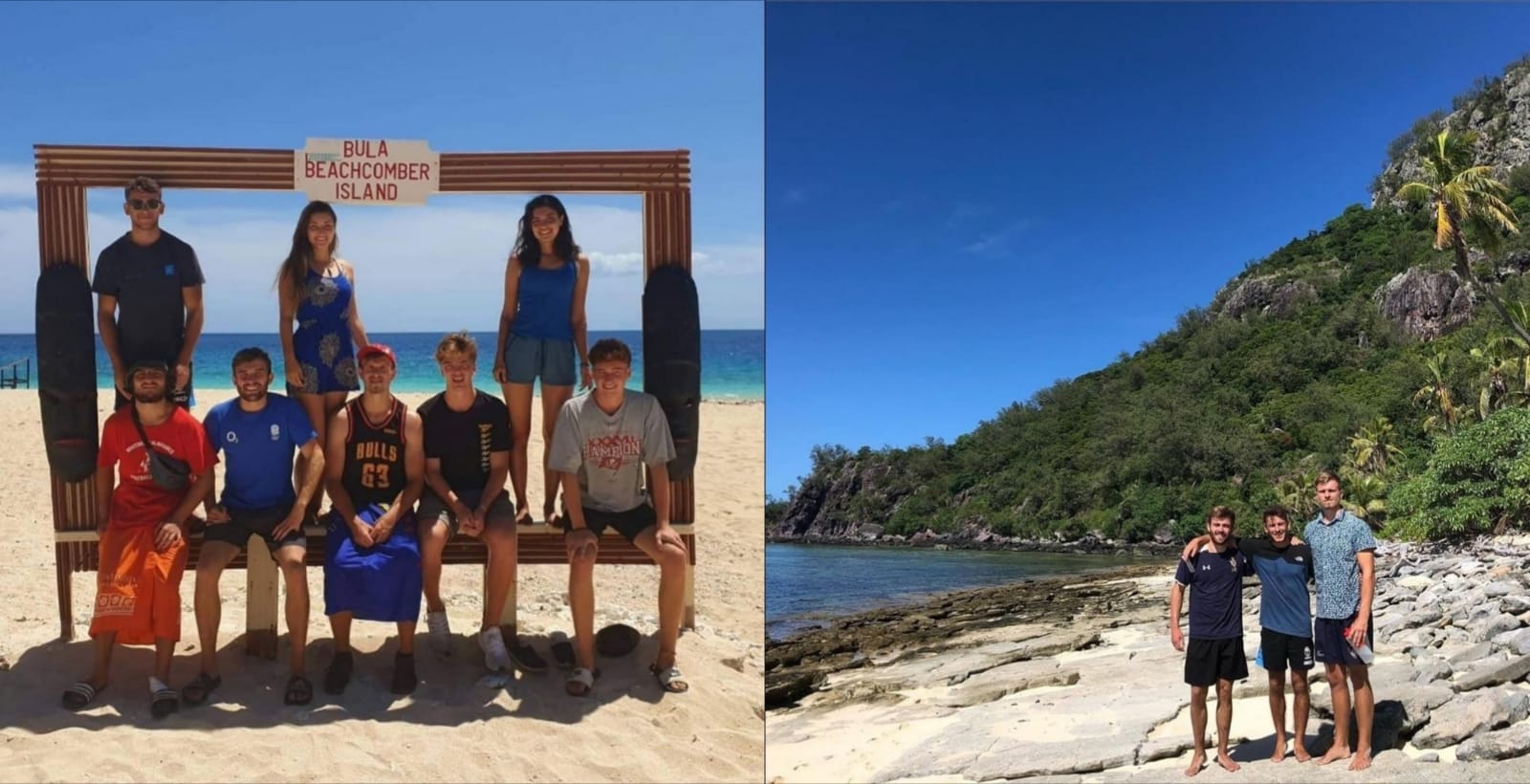
3. Cultural Appreciation
What better a way to appreciate, and be immersed into, a country’s culture than by working hand in hand with its local communities?
Being welcomed into the open arms of another community is a heart-warming and inspiring thing and is certain to leave you wanting to know more about, and engage further in, its cultural traditions and practices.
“…we were served the most delicious vegetable Daal and hard-boiled egg in Roro, cooked in fresh coconut milk” (Travel Journal Entry dated 04/02/20)
As you gain a greater curiosity for the culture and the community in which you work, your own understanding of its certain traditions, practices and ceremonies will develop. In turn, this will continue to exacerbate your fascination even further than before. The communities that you visit will be certainly as proud and as keen to share their culture with you, as you are to hear and learn from them.
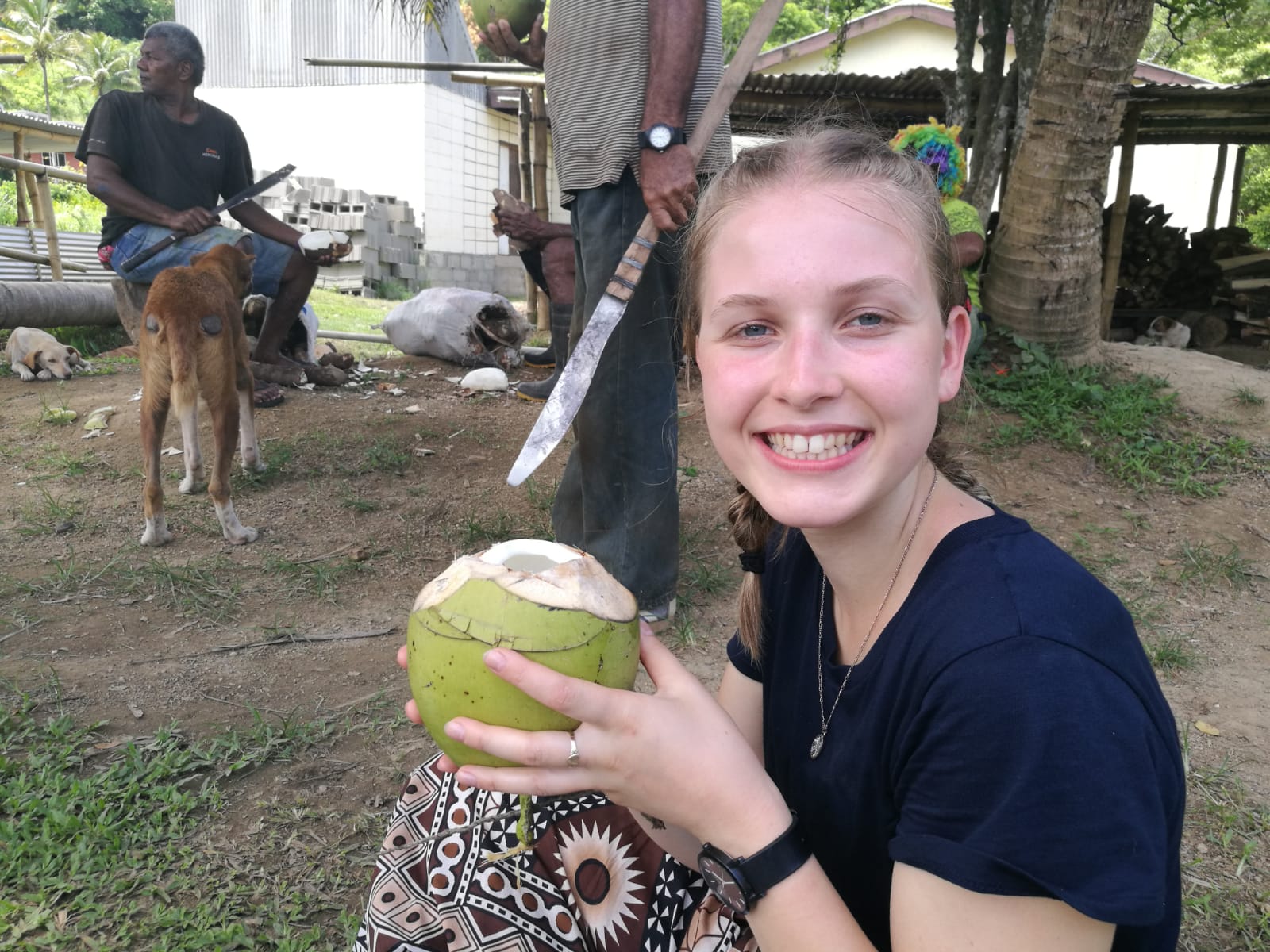
This does result in a perpetual— yet harmonious— cycle of never-ending questions, to say the least. However, this is so integral to appreciating and learning about the culture of the country that hosts you, and really contributes to the meaningful relationships you build within your community. We do, after all, have so much we can learn from each other.
“I took the time this morning… to just close my eyes and listen to and appreciate the sounds of the village. The cockerels, dogs, exotic calling birds, cicadas, mowing of the lawn, Momo [Dad] and Nene [Mum] singing the most beautiful hymn in harmony with one another…” (Travel Journal Entry dated 12/02/20)
Be prepared for equally as intrigued questions to be reciprocated by the community, with regards to your own culture—another example of positive shared learning experiences prevailing, once again! In this case, it’s a brilliant idea to bring along pictures, objects and/ or gifts from home to share your own culture with your new community. I can guarantee they will be treasured dearly by those who receive them.
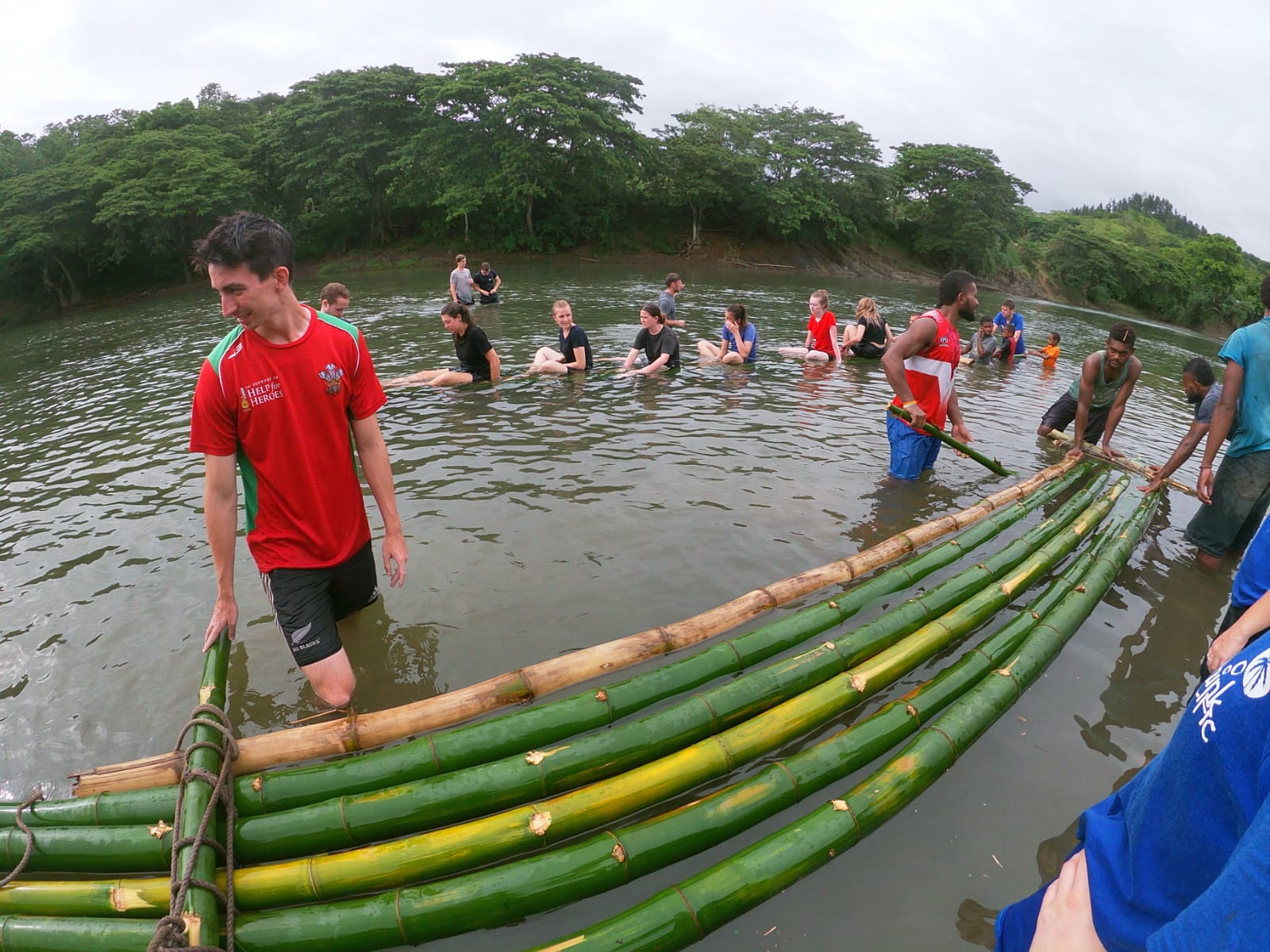
Having a community open its doors and culture to you is an experience to be cherished. Highlights of my cultural experiences in Fiji include, getting hands on with preparing the traditional whole village Lovo (cooking), working with the youths to assemble and race on Billi Billis (Fijian handcrafted bamboo rafts), and learning and performing the customary boy’s and girl’s Meke (Fijian dance) to one other and the village during our last evening’s ceremonies.
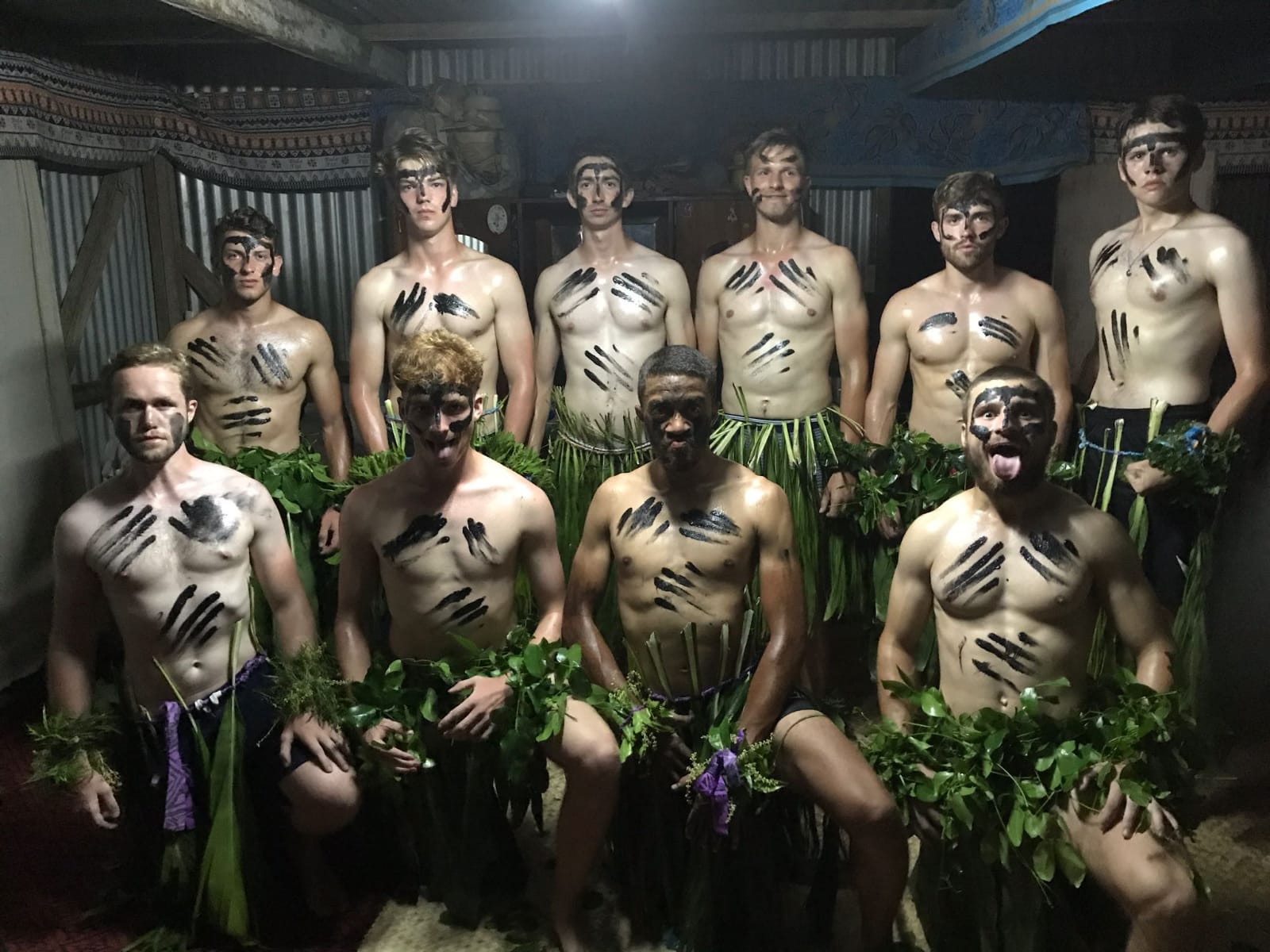
4. The Authentic Experience
‘…we visited some hot springs tucked away in a nearby village, in which we could only enter following a traditional Fijian ceremony, the Sevusevu…’ (Travel journal entry dated 22/02/2020)
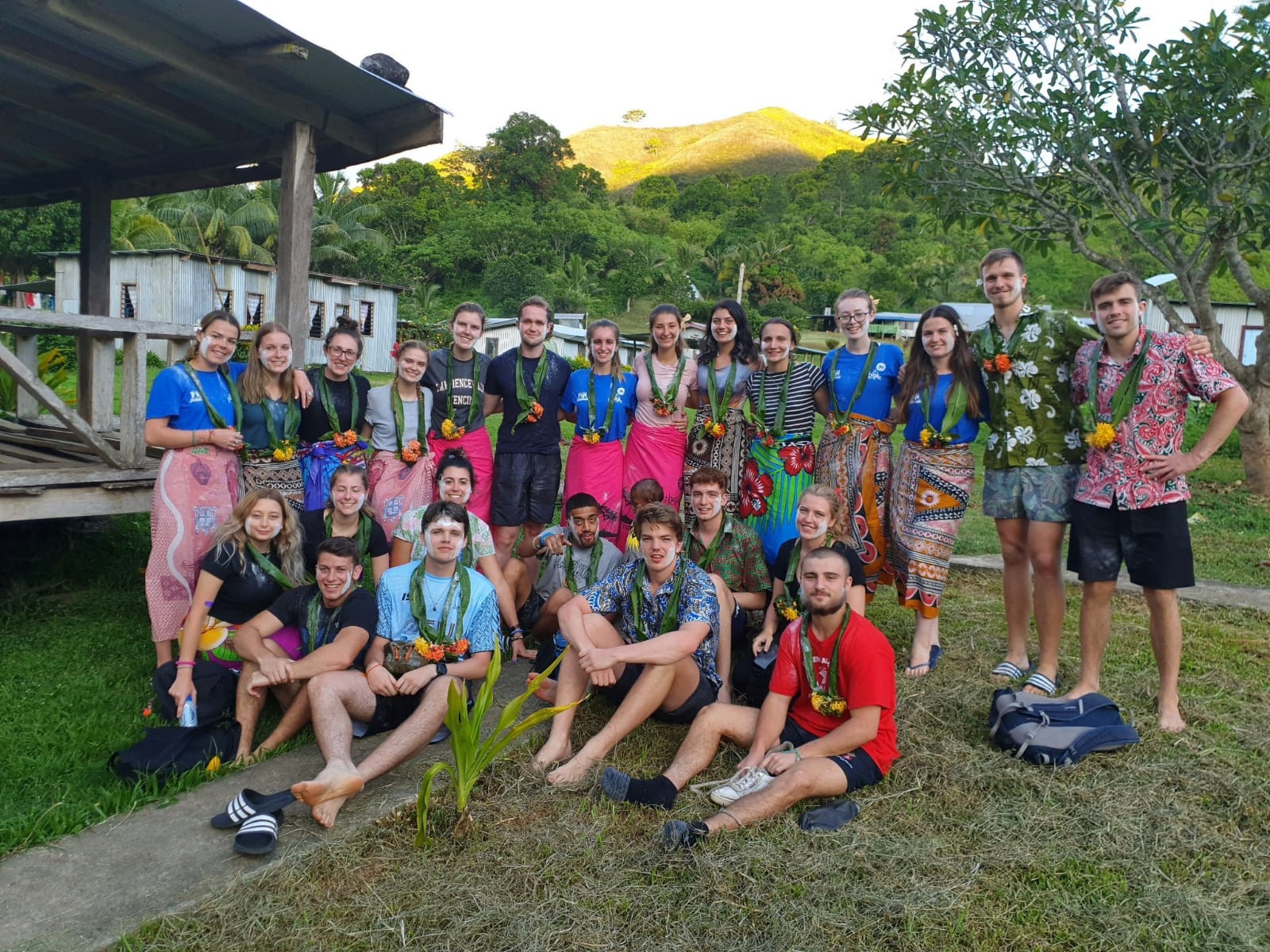
We have acknowledged by now that, volunteering internationally involves working closely together with the communities with which you volunteer. And an excellent advantage of this, especially for the avid travellers out there seeking a genuine experience of the countries that they explore, is that you will, subsequently, dodge conventionally ‘touristy’ activities, places and attractions.
The communities that you live and/or work within will show you the real, bona fide experiences of their country: the real livelihoods, the real work, the real food, the real people, and so much more. You may well get to treasure some hidden gems during your authentic journeying too.
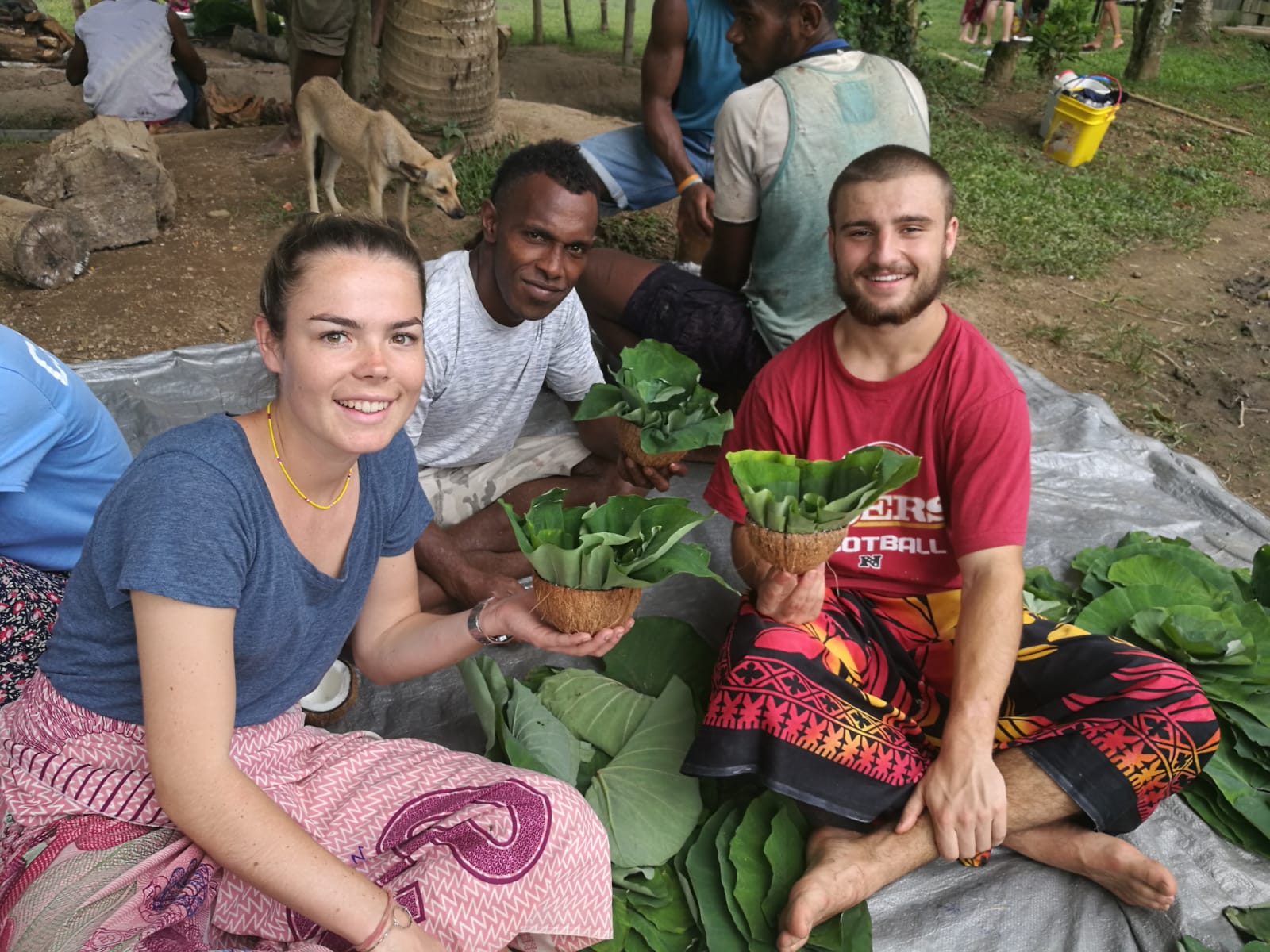
For example, on one of our free days to explore during our project, our volunteer group were taken by the local youths to, quite literally, a local hot spot: natural hot springs. Little to our knowledge, we were to engage in a traditional Fijian ceremony of being welcomed into the village in which the natural springs reside, in order to access these natural phenomena. Thus, through our engaging with the village community, we received a special taste of Fiji’s cultural heritage and practices, like no other to be found on your average sightseeing tour.
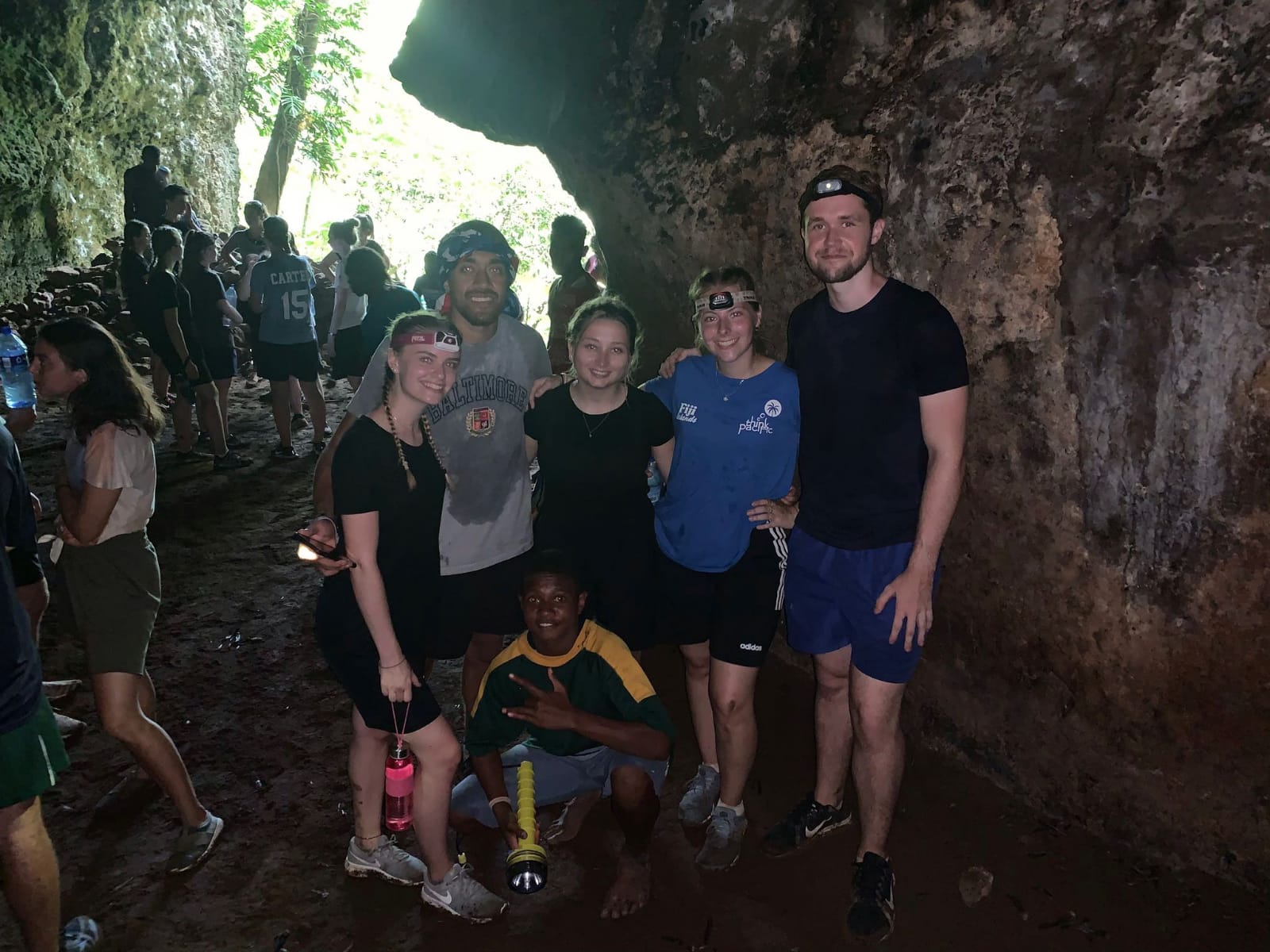
On another day of adventures— this time to the limestone Tatuba Cave in Sawene— we further received the true Fijian experience whilst on our voluntary placement. A location, we were informed, visited by students in Fiji during their studies of their country’s natural geography, in addition to studies of their country’s history (as the cave had played an integral role during the Little War of Fiji, c. 1875, amongst a plethora of other examples throughout Fijian history).
Therefore, we were— yet again— lucky enough to receive an experience legitimate to many comprising elements of Fiji, those elements of which fashion it into the beautiful and fascinating country that it is.
Moreover, the locals that you meet will know their motherland like the back of their hand and will be honoured to show off their country’s best. As a result, they will know the go to’s and the definitely don’t go to’s, one could say.
After all, there is a reason why the phrases ‘safe travels’, ‘safe trip’, ‘safe journey’, and all variants in between, exist. Safety is a priority whilst travelling and, subsequently, it is common and certainly key to be conscious of certain issues whilst you are away. These can include, but are not limited to, petty crime, fraud and financial exploitation. Issues that you are significantly less likely to face whilst in the safe and knowledgeable hands of your new local community.
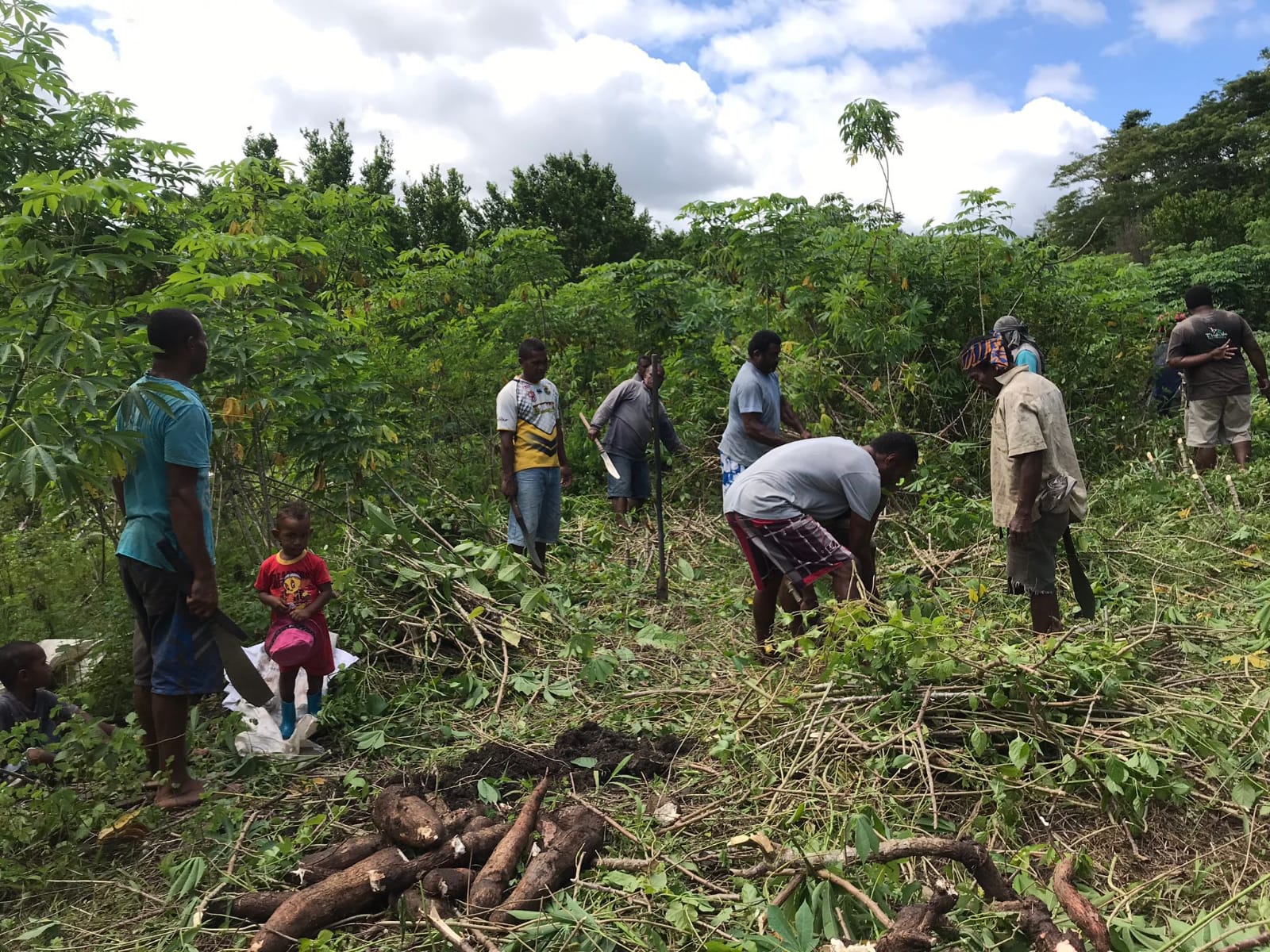
5. Push Yourself
Following the somewhat idyllic picture that I have painted of volunteering abroad so far throughout this blog post, it may come as a surprise that, despite what you’ve read, it’s not all fun and games one hundred percent of the time. Hard-work and determination are required, and you will find moments, even before you have stepped foot onto a plane, where your resilience and skills are put to the test.
Pushing yourself may start as early as a few months up to a year before you are ready to jet set off. And the clue is in the name: volunteering. The work you will be doing is unpaid and you will be expected to fund your trip yourself, which will more often than likely include a fee to your chosen charity or organisation for your place on a project, in addition to payment for your flights, and your initial accommodation, food and travel.
As a result, be prepared, well before your volunteer work has even started, to really get stuck in. For example, you may have to find yourself a temporary job, or take those extra shifts at work, in order to earn that extra cash for your plans to come to fruition. Or, if you would really like to push yourself, fundraising is a great way of raising your money, whilst building your skill sets, all in the name of making your travel dreams come true.
Acquiring your finances for volunteering abroad—fully or partially— through fundraising is a fantastic learning experience, and one that I’d recommend anyone to give a go. Fundraising requires a lot of planning, organisation and, indeed, imagination if you want to be successful. If you need a bit of inspiration, there’s plenty of useful websites, resources or blogs that can be found, either through the organisation you sign up with or through any web browser.

Some top tips I’d recommend to anyone who decides to take the plunge: firstly, think about your skills. For example, are you great at a sport? If so, try a sponsored run or sponsored event in your chosen sporting activity, or giving sports lessons for a voluntary donation fee, or maybe even organising a fundraiser sports day in your local community.
Secondly, think about your available connections. Do you know anyone in your circle of friends, family, school, work, etc, and, additionally, any resources that could help you with your fundraising? In my case, this varied from friends sharing my ‘JustGiving’ page on Facebook, to my Mum’s workplace offering to host some of my fundraiser bake sales.
Thirdly, think about what makes people want to part ways with their cash. Is it a compelling personal story? Evidence of hard work? Something that they can purchase or receive in return for their well-earned cash? And finally: good luck!
Now, it’s time to skip forward a few months. Picture the scene… You’ve successfully raised your funds. You’ve (somehow) managed to pack everything into your travel bags. You’ve caught your flight/s on time. You’re well underway with your voluntary work. And you may just find yourself experiencing tough moments. And that’s OK.
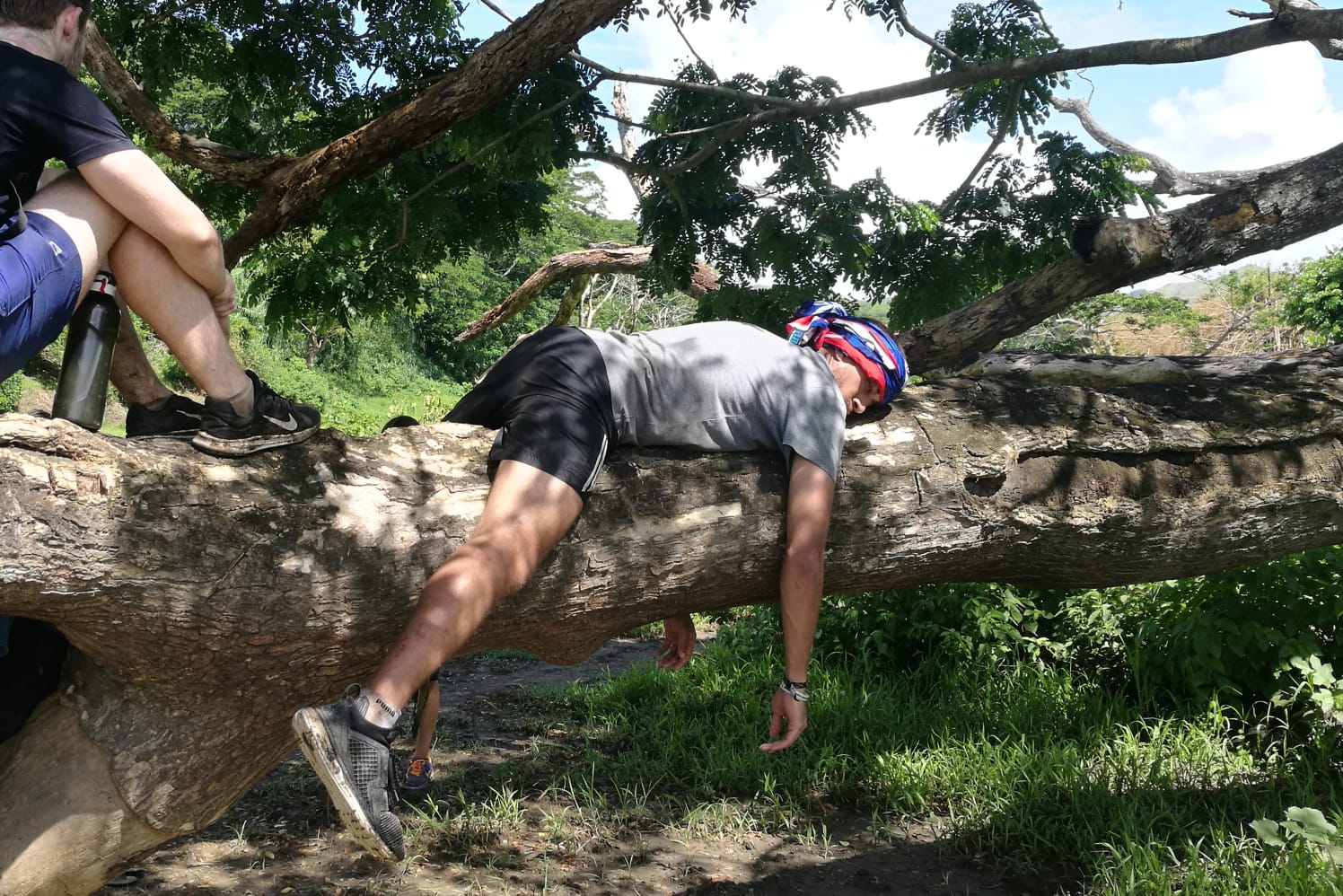
Homesickness, culture shock, jetlag, tiredness, struggling with change to your regular climate and working conditions, illness and goodbyes, are all examples of circumstances you might struggle with whilst volunteering internationally. However, your fellow volunteers, your project leaders, your new community, friends and family are all there to support you, with some more often than likely, going through similar situations.
“‘It is heart-breaking to see [our Fijian family] cry but it is remembering that the tears come from the most genuine, loving place” (Travel journal entry dated 22/02/2020)
Most importantly, you will be able to push through any of these issues and you will come out the other side a stronger and more resilient person. The positive impact of the work you will be doing is an incredibly motivating and inspiring driving force, during times when carrying on feels tough.
So, stay focused on the incredible that work you’re doing, look after yourself and others, but don’t forget to push yourself whilst doing so! As, it’s when you step outside of your comfort zone that you can, and will, achieve incredible things.
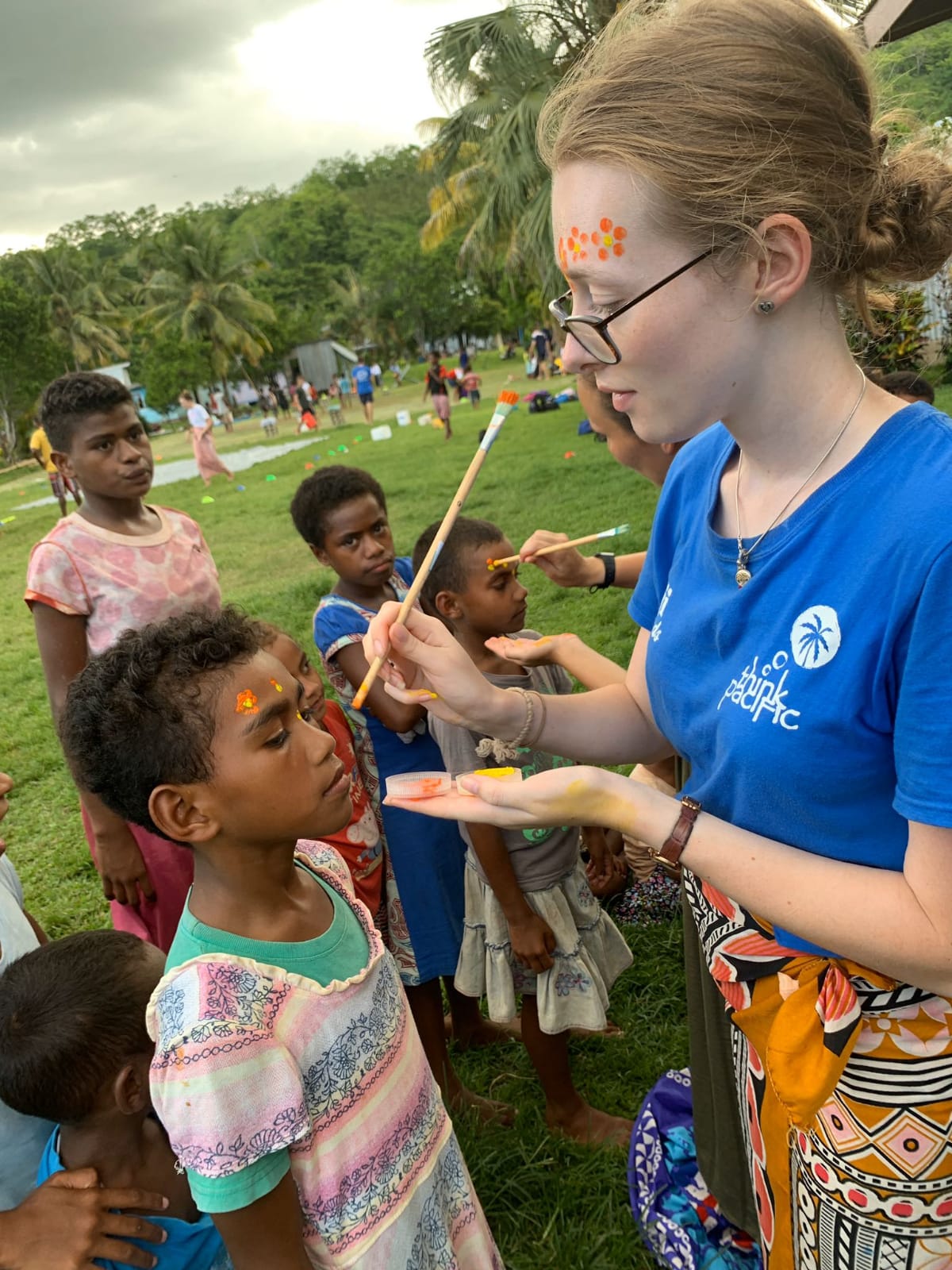
Next Steps?
Considering the current times during which we are living, I would be lying if I said, at present, it’s easy to get involved with future international voluntary work. It’s now slightly more complicated, but it’s not a Herculean task.
Despite a considerable number of schools, sixth forms, colleges and Universities across the country being fully or partially closed, careers advisers and careers services, through your respective educational institution (including for college/ University graduates), are generally still available to make use of. They will be able to guide you with how the current situation is affecting international voluntary schemes, in addition to be able to provide you with useful links or websites where you can browse the future opportunities that are available.
It will also be worthwhile to get in contact directly with any charities or organisations that offer these projects, to find out more about how the Coronavirus is affecting their work. And if you don’t have a careers network to hand, then no fear- Google is also a brilliant source to browse your options. Just make sure to do your thorough research.
Also, try speaking to friends and family and ask if they have any experience of volunteering internationally. A considerable number of volunteers in my expedition group had heard of Think Pacific through their own friends or family by word of mouth, so, who knows how many of your respective relations will have had similar experiences?
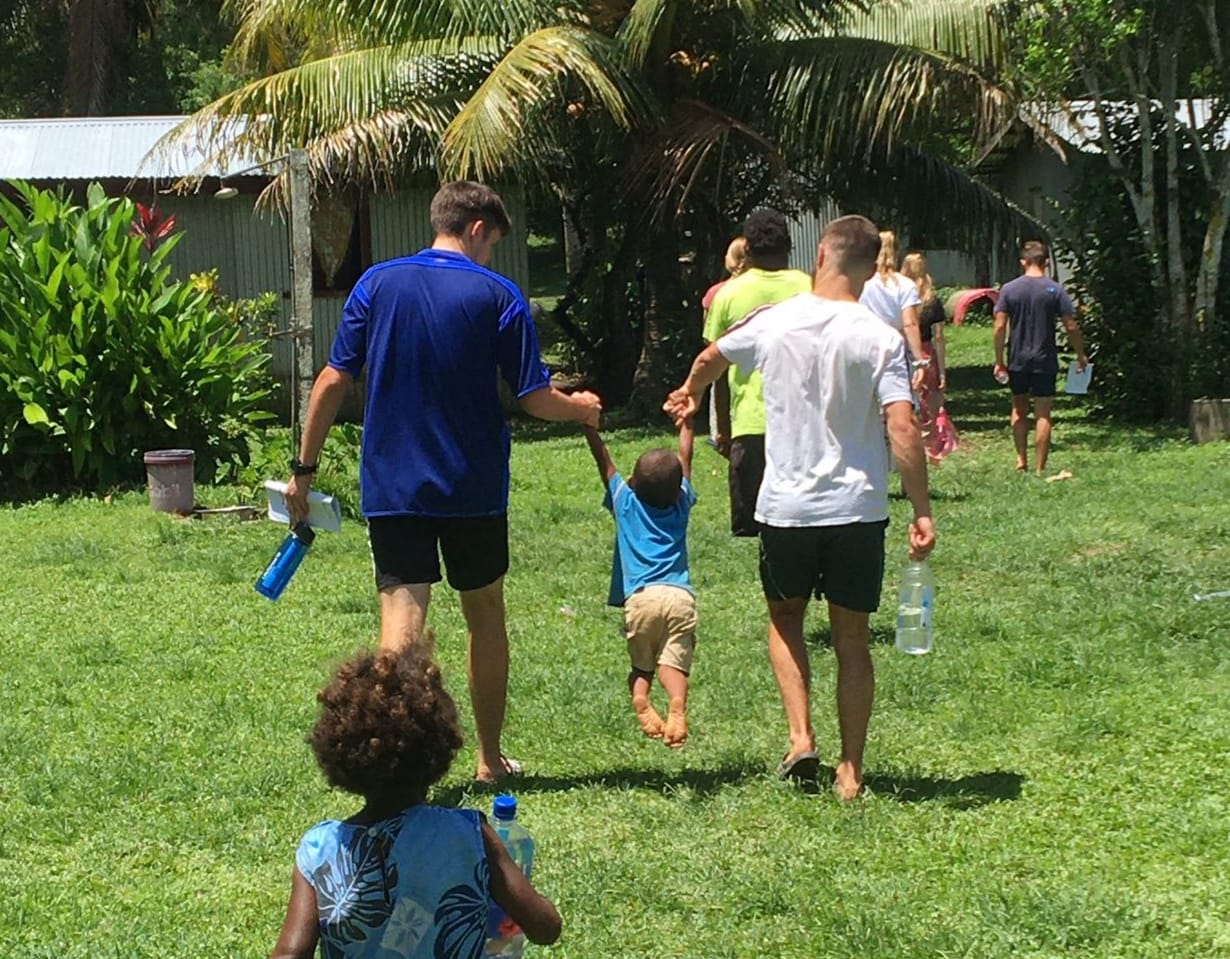
Hopefully by this conclusive point you’ll no longer be questioning, why should I consider future international volunteering? But rather, why shouldn’t I? Go on, take that leap. For when the time comes for us all to resume our usual lives once again, the adventure of a lifetime awaits you.
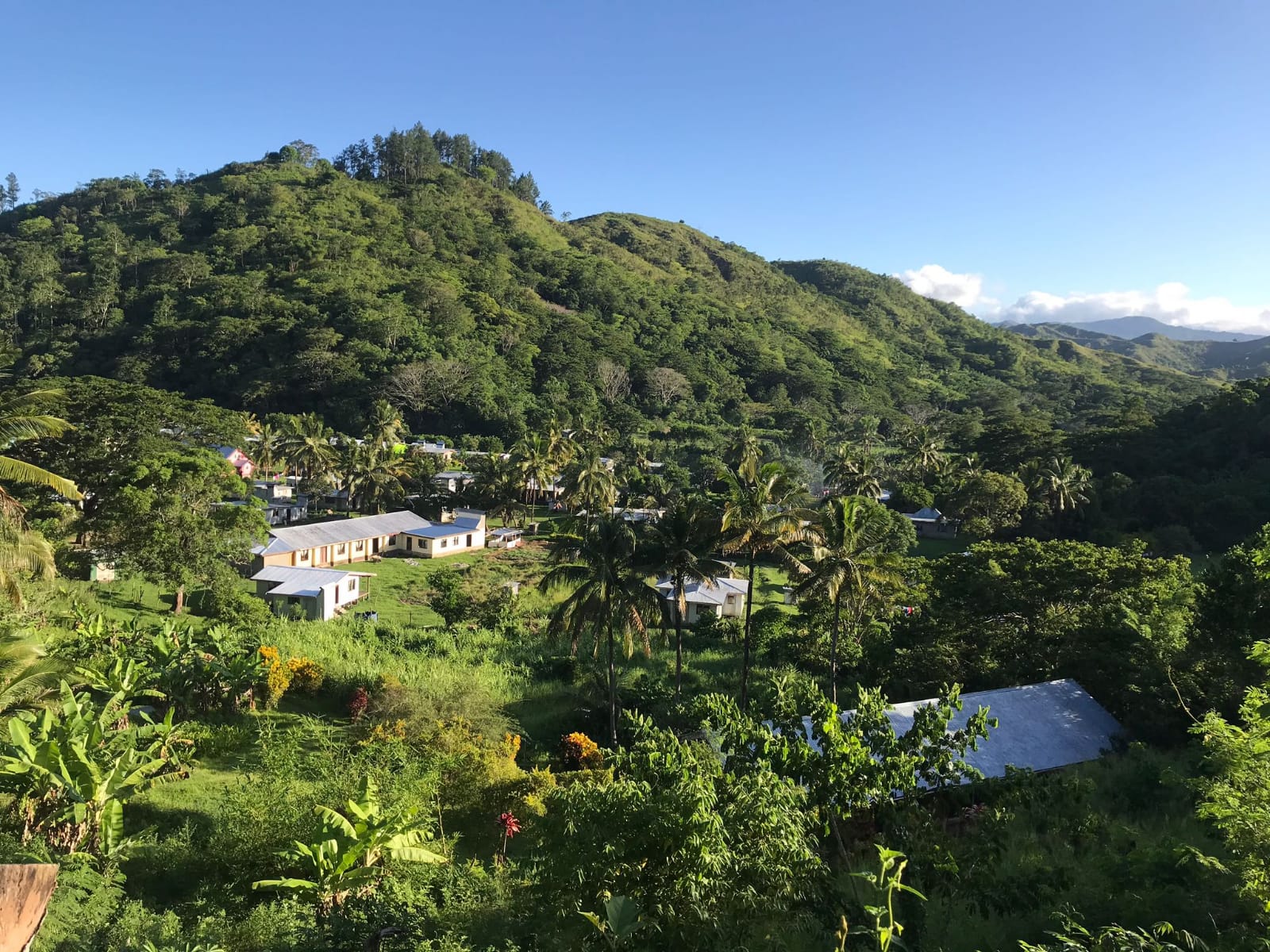
This article is written with thanks to Think Pacific and to my fellow volunteers and leaders, firstly, for permitting me the use of our shared images and, not forgetting, for being the best expedition team an international volunteer could ask for. Most importantly, this article is indebted to our friends and family in the beautiful village of Nubuyanitu in Fiji. Vinaka vaka levu! Lastly, sending well wishes of safety to the Fiji Islands in the wake of cyclone Harold, in addition to during the current pandemic.
Credit: Hannah Mitchell
Original Article: https://www.linkedin.com/pulse/why-should-i-consider-future-international-voluntary-work-mitchell/
